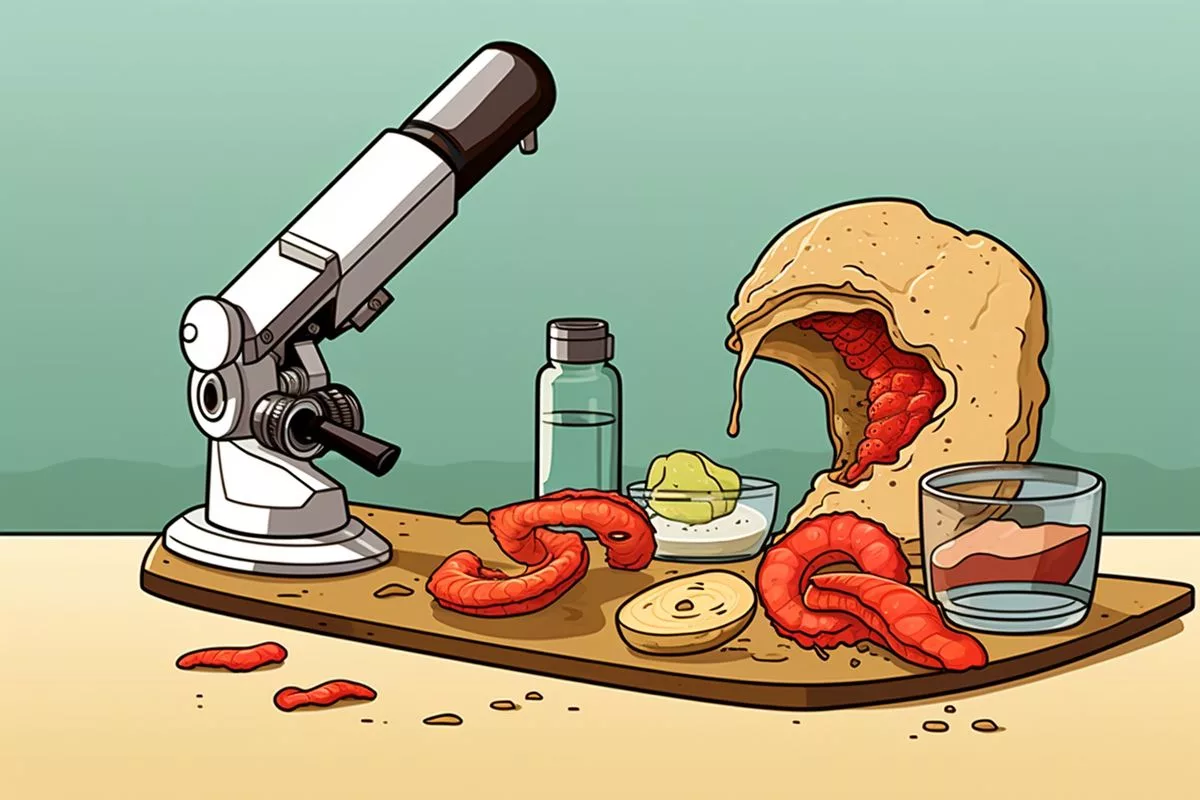Eastern Cape MEC for Health, Nomakhosazana Meth, is calling for increased food safety inspections and penalties for store owners who sell expired products in South Africa. This comes after a surge in foodborne illnesses across the nation, particularly among school children. Meth has urged municipalities, law enforcement agencies, and other stakeholders to enhance food safety inspection procedures to protect children from expired items and ensure that store owners who violate the law are held responsible. The responsibility for food safety also falls on consumers to be cautious about where they buy their food.
What is the call to action regarding food safety inspections in South Africa?
Nomakhosazana Meth, the Eastern Cape MEC for Health, is advocating for heightened food safety inspections and penalties for store owners who sell expired products. There has been a spike in foodborne illnesses across the nation, particularly among school children. Meth has urged municipalities, law enforcement agencies, and other stakeholders to enhance food safety inspection procedures to protect children from expired items and ensure that store owners who violate the law are held responsible.
A Call to Increase Food Safety Inspections
The battle against tainted food in South Africa has welcomed a new champion: Eastern Cape MEC for Health, Nomakhosazana Meth. Amid a spike in foodborne illnesses across the nation, Meth is advocating for heightened food safety inspections and for store owners who sell expired products to face penalties.
In recent times, South Africa has experienced a worrisome surge in presumed foodborne illness cases, especially among school children. In the Eastern Cape, the number of affected students rose dramatically to 143, exhibiting symptoms such as stomach pain, nausea, vomiting, itching, fever, and breathing difficulties. Although no fatalities have been reported in the area, one child needed intensive care in a stable condition.
These occurrences have ignited nationwide worry, particularly given that at least two children have allegedly died in Gauteng after eating snacks bought from a local store. In reaction to this, Meth has urged municipalities, law enforcement agencies, and other stakeholders to enhance food safety inspection procedures. These efforts are vital to protect children from expired items, including baby formula, and to ensure that store owners who violate the law are held responsible.
Legal Support and Municipality Efforts
To back this call to action, current legislation grants municipalities the power to enforce food safety regulations. The Foodstuffs, Cosmetics and Disinfectants Act 54 of 1972 and the National Health Act of 2003 allow municipalities to carry out food safety inspection blitzes, impose fines on rulebreakers, shut down non-compliant stores, and make arrests.
MEC Meth commended the recent food inspection blitz and raids conducted by Buffalo City Metro and Enoch Mgijima Local Municipality, encouraging all municipalities to do the same. Routine inspections are crucial to prevent foodborne illness outbreaks and should not be restricted to moments when cases arise.
While tests are ongoing to determine the cause of the illness among the 143 students, a common factor appears to be purchasing snacks and food from local vendors or stores. Food safety is an issue that impacts everyone in society, and as the number of foodborne illness cases rises, public health is at risk.
Consumer Responsibility and Historical Context
In view of this, the responsibility rests not only with municipalities and law enforcement agencies but also with consumers to be cautious about where they buy their food. By supporting the push for heightened inspections and rigorous accountability measures, the Eastern Cape community can work together to ensure food safety for all.
During this period of increased focus, it is crucial to consider the broader historical and cultural context of food consumption and safety. The history of food safety regulations can be traced back to ancient civilizations, with various societies implementing rules to guarantee the wellbeing of their citizens. From the Roman Empire’s actions against food tampering to the British Food and Drugs Act of 1860, numerous examples show a long-standing dedication to protecting public health.
Additionally, artistic movements have contributed to raising awareness about the importance of food safety. Upton Sinclair’s groundbreaking 1906 novel “The Jungle” revealed the terrible conditions of the American meatpacking industry, resulting in significant regulatory reforms. More recently, documentaries and investigative journalism have helped inform the public about ongoing food safety issues.
As South Africa confronts this increase in foodborne illness cases, it is crucial to recognize that the problem goes beyond individual incidents and is rooted in a larger quest for public health and safety. By intensifying food safety inspections and holding lawbreakers accountable, the Eastern Cape community can join the worldwide movement to protect the wellbeing of all people.
The unfolding story of the 143 students serves as a potent reminder that food safety is an essential aspect of public health. By endorsing rigorous inspections and strict accountability measures, citizens, municipalities, and law enforcement agencies can collaborate to ensure a safer future for the nation’s children and all consumers.
1. What has caused the surge in foodborne illnesses in South Africa?
The surge in foodborne illnesses in South Africa is largely unknown, although there have been presumed cases of food poisoning among school children. Investigations are ongoing to determine the root cause of these illnesses.
2. Who is advocating for increased food safety inspections and penalties for store owners who sell expired products?
Nomakhosazana Meth, the Eastern Cape MEC for Health, is advocating for heightened food safety inspections and penalties for store owners who sell expired products. Meth has urged municipalities, law enforcement agencies, and other stakeholders to enhance food safety inspection procedures to protect children from expired items and ensure that store owners who violate the law are held responsible.
3. What can municipalities do to enforce food safety regulations?
Municipalities have the power to enforce food safety regulations under the Foodstuffs, Cosmetics and Disinfectants Act 54 of 1972 and the National Health Act of 2003. They can carry out food safety inspection blitzes, impose fines on rulebreakers, shut down non-compliant stores, and make arrests.
4. What is the responsibility of consumers in ensuring food safety?
Consumers have a responsibility to be cautious about where they buy their food and should support efforts for heightened inspections and rigorous accountability measures. By working together, the Eastern Cape community can ensure food safety for all.
5. What is the historical context of food safety regulations?
The history of food safety regulations can be traced back to ancient civilizations, with various societies implementing rules to guarantee the wellbeing of their citizens. From the Roman Empire’s actions against food tampering to the British Food and Drugs Act of 1860, numerous examples show a long-standing dedication to protecting public health.
6. How has art contributed to raising awareness about food safety?
Artistic movements have contributed to raising awareness about the importance of food safety. Upton Sinclair’s groundbreaking 1906 novel “The Jungle” revealed the terrible conditions of the American meatpacking industry, resulting in significant regulatory reforms. More recently, documentaries and investigative journalism have helped inform the public about ongoing food safety issues.
7. What is at risk as the number of foodborne illness cases rises?
As the number of foodborne illness cases rises, public health is at risk. It is essential to ensure food safety for all to protect the wellbeing of all people.
8. What is the significance of routine inspections?
Routine inspections are crucial to preventing foodborne illness outbreaks and should not be restricted to moments when cases arise. By conducting regular inspections, municipalities and law enforcement agencies can ensure the safety of consumers and hold store owners accountable for violating food safety regulations.








